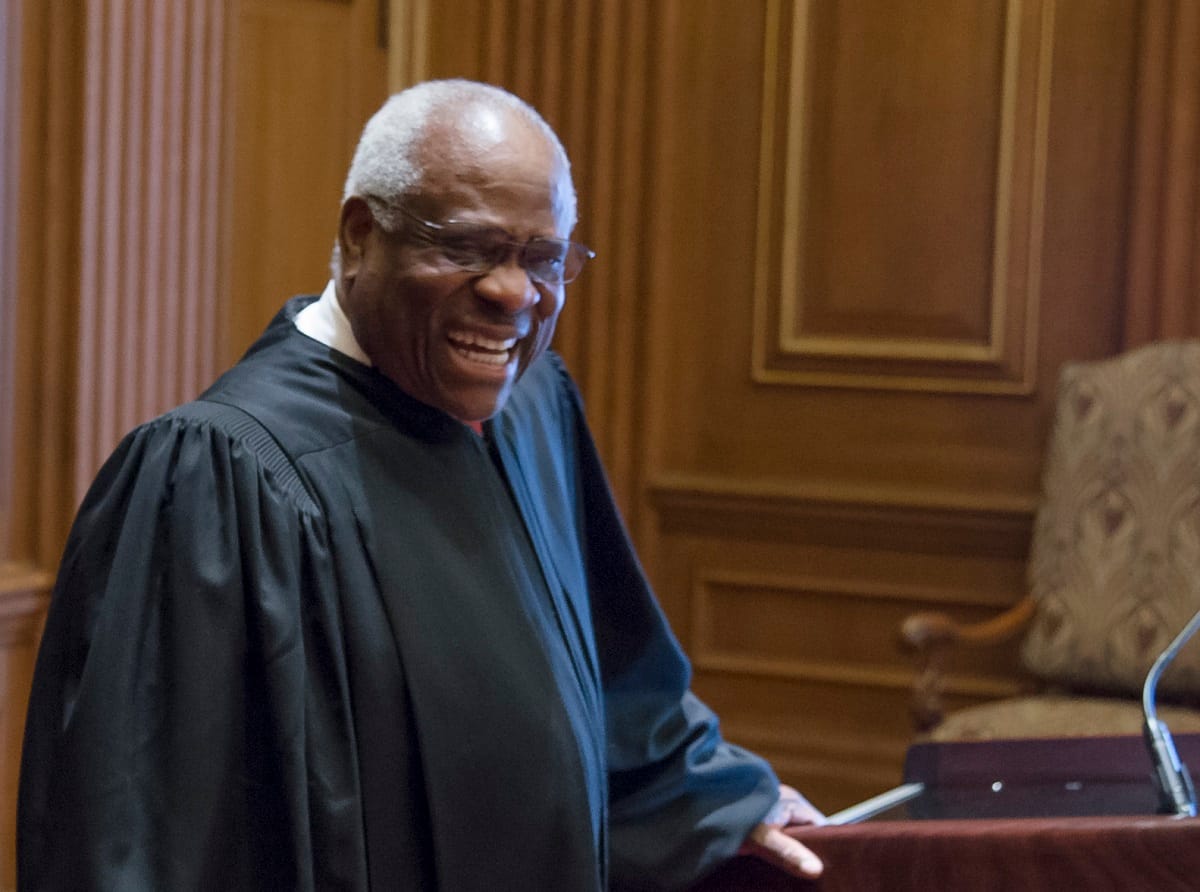Broadband Roundup: Justice Clarence Thomas Expresses Regret on Brand X, Clearview AI Hacked, Online Privacy Act
In the seemingly never-ending debate over whether broadband classifies as a Title I information service, or a Title 2 telecommunications service, Supreme Court Justice Clarence Thomas regrets his ruling in 2005 that “gave federal agencies extensive power to interpret U.S. law,” reports Jon Brodkin f

In the seemingly never-ending debate over whether broadband classifies as a Title I information service, or a Title 2 telecommunications service, Supreme Court Justice Clarence Thomas regrets his ruling in 2005 that “gave federal agencies extensive power to interpret U.S. law,” reports Jon Brodkin for Ars Technica.
Net neutrality has come to the forefront yet again as the U.S. Court of Appeals for the D.C. Circuit repealed three elements of the Federal Communications Commission’s proposal to treat broadband as an internet service.
“But in a dissent on a new case, released Monday, Thomas wrote that he got Brand X wrong,” writes Brodkin.
Referring to the National Cable & Telecommunications Association v. Brand X Internet Services, Thomas stated, “Under its rule of deference, agencies are free to invent new (purported) interpretations of statutes and then require courts to reject their own prior interpretations.”
Clearview AI hacks raises concerns about anonymity
Clearview AI, the controversial facial recognition company lead by Hoan Ton-That, was hacked.
Kashmir Hill reported on Clearview AI for the New York Times last month in an article that brought to light the extensive database the company has that accesses billions of photos from online resources, like social media.
Jordan Valinsky reported for CNN Business that Clearview AI “said it lost its entire client list to hackers.” A client list that includes “police forces, law enforcement agencies and banks,” writes Valinsky.
Sen. Edward Markey, D-Mass., sent a letter to Ton-That with concerns that his Clearview AI “could eliminate public anonymity in the United States.”
Following the news of the data breach, Markey released a statement yesterday, saying “Clearview’s statement that security is its ‘top priority’ would be laughable if the company’s failure to safeguard its information wasn’t so disturbing and threatening to the public’s privacy,” said Markey.
“This is a company whose entire business model relies on collecting incredibly sensitive and personal information, and this breach is yet another sign that the potential benefits of Clearview’s technology do not outweigh the grave privacy risks it poses,” Markey stated.
New groups announce support for Online Privacy Act
In a house press release yesterday, an additional 15 groups announced support for the Online Privacy Act.
“The Online Privacy Act is sweeping legislation that creates user rights, places obligations on companies to protect users’ data, establishes a new federal agency to enforce privacy protections, and strengthens enforcement of privacy law violations.”
H.R. 4978 was created by Rep. Anna Eshoo, D-Calif., and Rep. Zoe Lofgren, D-Calif.
Support was garnered from groups including the National Hispanic Media Coalition, MediaJustice, Free Press Action, Public Knowledge, and several professors.
“The theft and abuse of personal data is unacceptable, and it’s well-past time to put an end to unfair business practices that deny users control over their own data. Our legislation ensures that every Americans’ right to their personal data is protected, and that the government provides tough but fair oversight,” said Eshoo and Lofgren.








